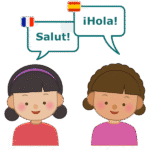While finding ways to rest and recharge over the summer is important, summer break also opens up some time for educational activities and enrichment that can help support students’ learning and language development without the pressures of the school semester. You may also have some parents of multilingual learners asking what resources and activities they can provide their children to continue practicing their literacy skills during the summer months. We’ve compiled a list of summer activities to support language development, as well as provided a printable dual-language activities workbook they can work on with their students.
Here are three ideas for educational summer activities that support language development for ELLs in grades K-12:
1. Summer Reading
Over the summer, families can encourage ELLs to read books appropriate for their reading level that are also engaging, exciting, and connect to students’ interests.
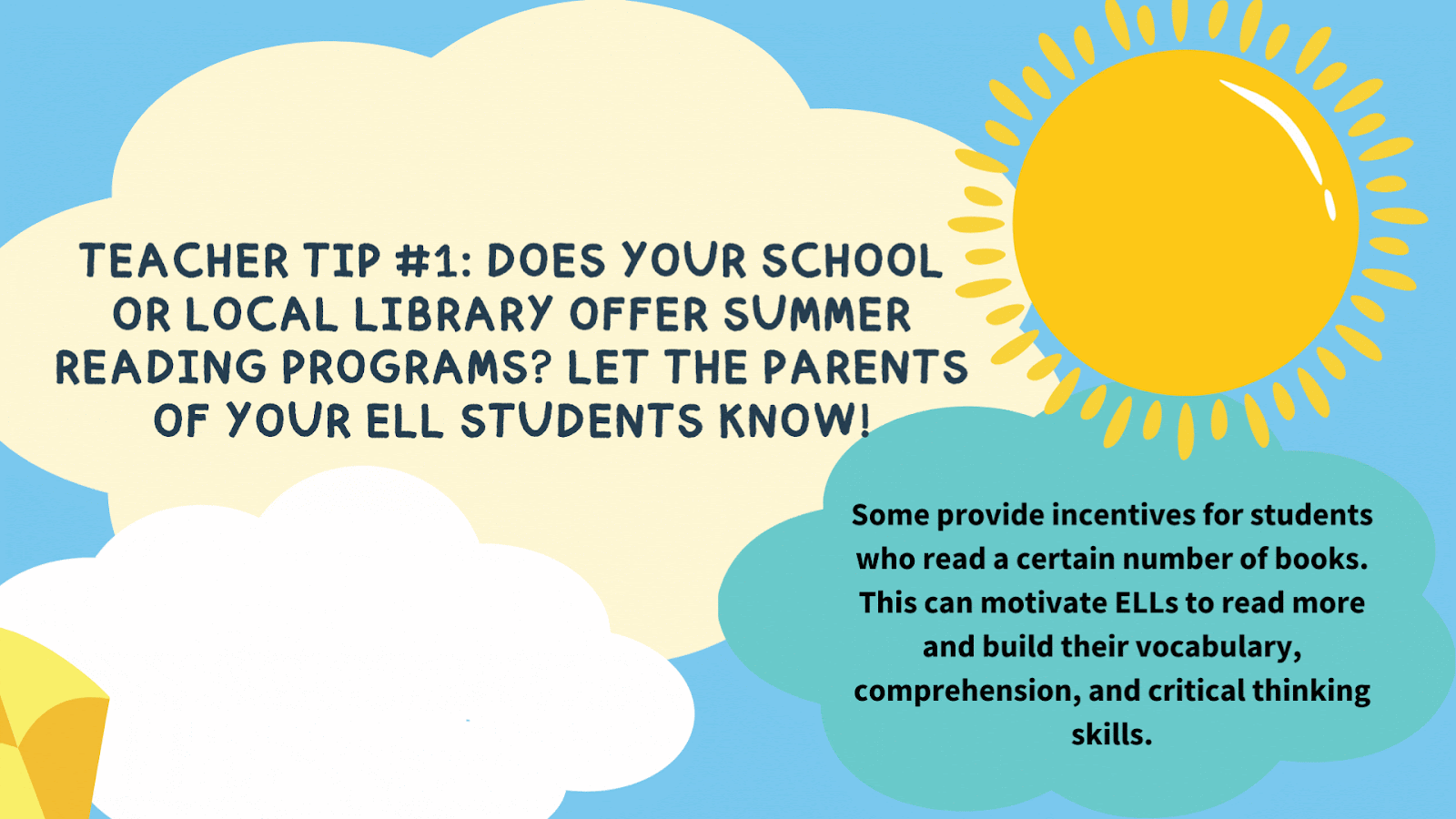
Websites such as Colorín Colorado provide booklists and reading guides for ELLs to find reading resources. Here are our favorites by age/grade level:
- Boogie Boogie, Y’all by C. G. Esperanza, Age Level: 6-9
- Healer of the Water Monster by Brian Young, Age Level: 9-14
- How Moon Fuentez Fell in Love with the Universeby: Raquel Vasquez Gilliland, Age Level: 14-18
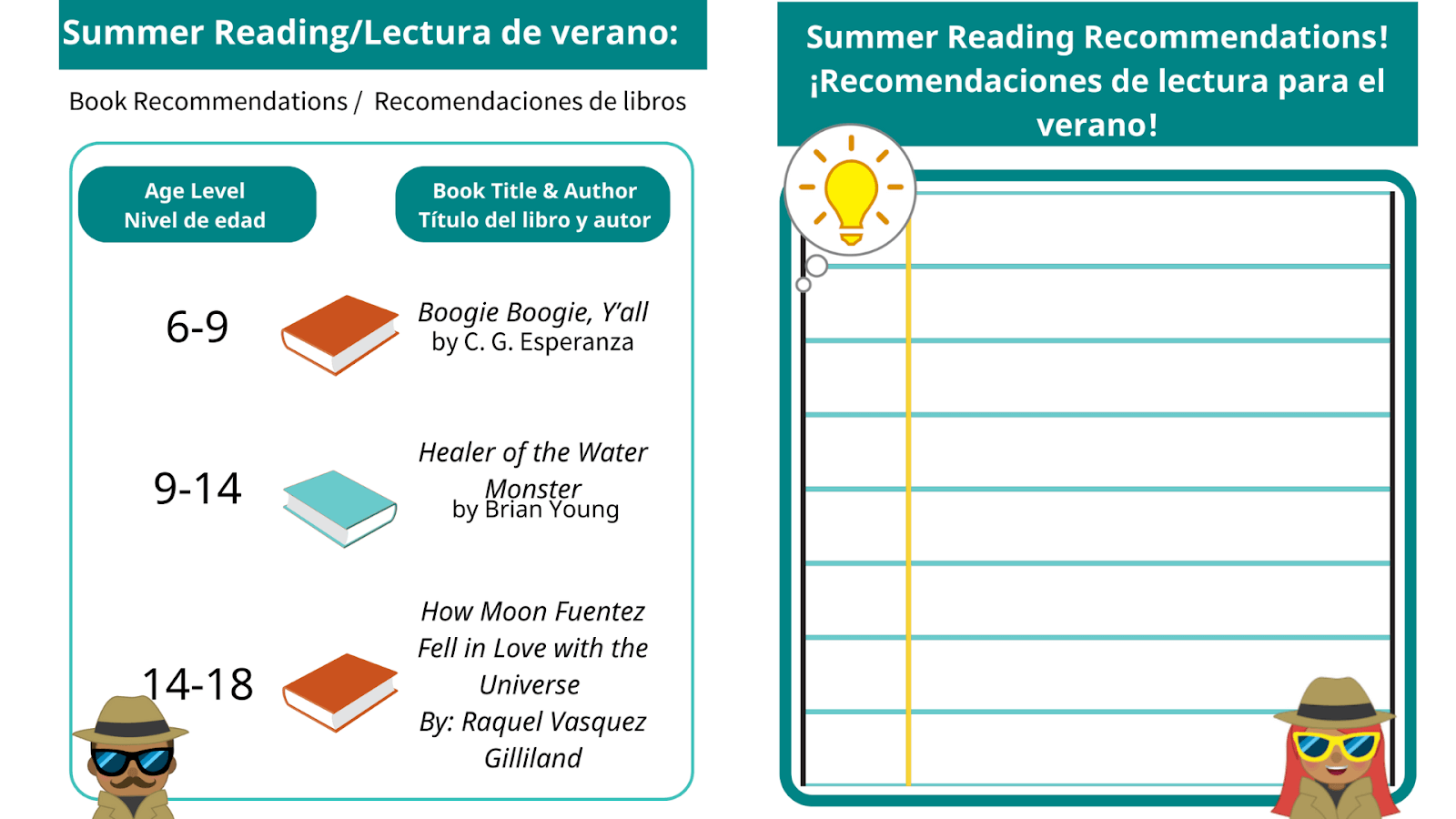 In our printable activity, we’ve included the list above and a blank sheet you can fill in to provide parents with your own recommendations!
In our printable activity, we’ve included the list above and a blank sheet you can fill in to provide parents with your own recommendations!
ReadWorksoffers free reading passages and comprehension questions for grades K-12. Local public libraries may also prepare reading lists, book clubs, or guided reading resources for students to access during summer break.
2. Writing Prompts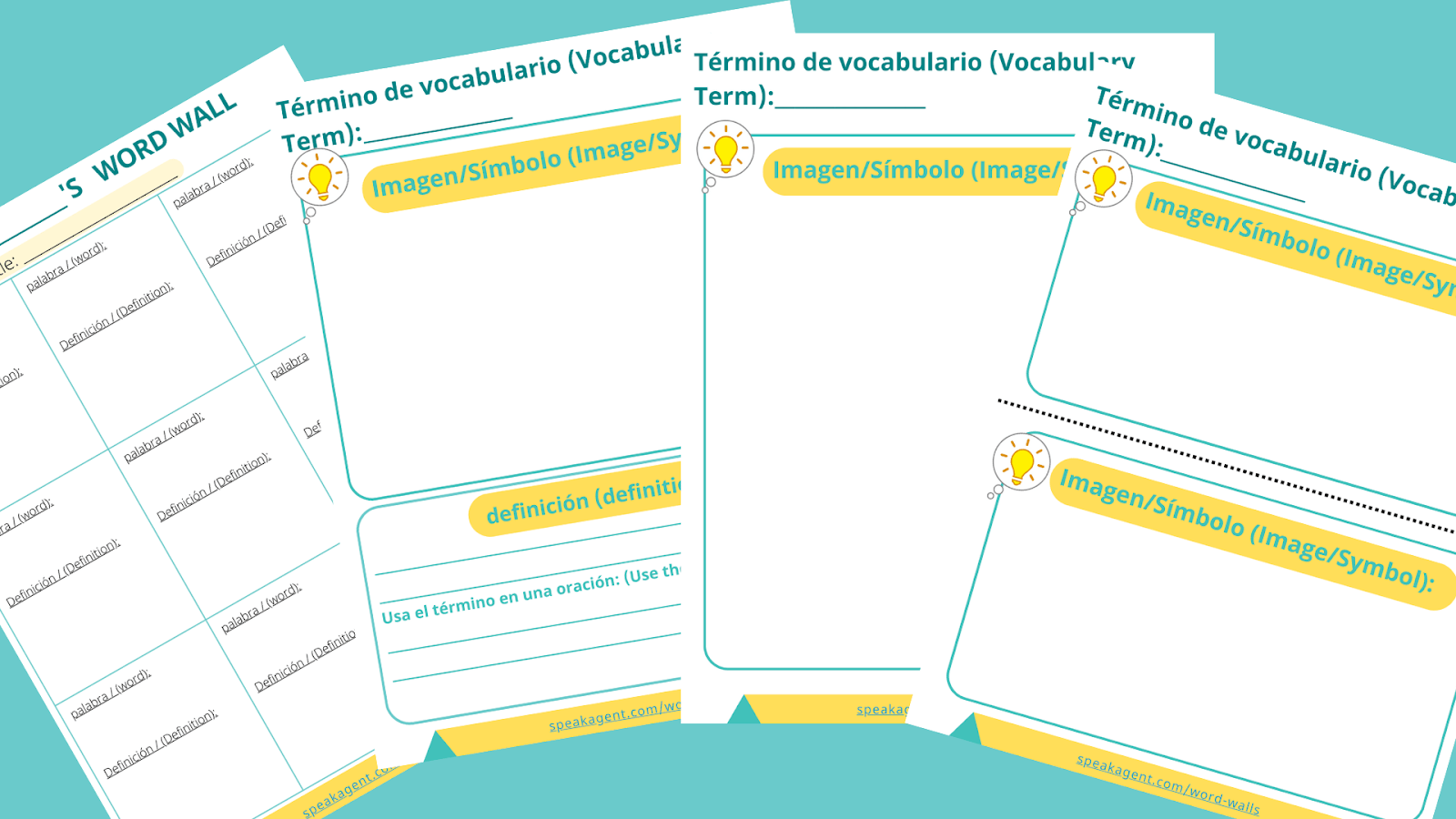
Writing is another language skill students can build upon during the summer. Providing ELLs with writing prompts helps them practice their grammar, spelling, and vocabulary, develop their creativity and self-expression, and minimize the review they need at the beginning of the fall semester.
Teachers and families can pull from various sources to find writing prompts for ELLs, such as this article with 49 journaling prompts for ELLs or these visual writing prompts from the New York Times.
For STEM-specific free printable activities, check out Speak Agent’s Word Walls and Dialogic Reading activities in the printable booklet for writing prompts and more. For dialogic reading, pair it with a book you’ve chosen from the recommendations above, or select your own!
3. Language Exchange Programs
ELLs benefit from interacting with native English speakers to practice their English-speaking skills. Teachers and families can organize language exchange or buddy programs that pair ELLs with native English-speaking peers in person or online. This allows ELLs to practice their speaking and listening skills in a real-life context and learn about different cultures and perspectives.
If you don’t already have a summer program set up, language exchange buddy programs can be easy to implement! These can be done within the school or by partnering with libraries, community centers, or summer camps to reach students where they are. This improves the connection between peers with different language and cultural backgrounds, creating a stronger web of support and engagement throughout the school community.
Virtual programs, such as Students of the World or My Language Exchange, can also allow students to practice conversational reading and writing skills. The novelty and excitement of talking with new people can motivate students who may be shy about conversing with peers in their class.
Many educational summer activities can support language learning for ELLs. Ensuring that students and families have access to various resources is key to supporting students’ language development all summer long.
Read Also:
- Making STEM Accessible for ELLs
- Speak Agent Launches Formative Assessment Tool
- Five Secrets to District-Wide Success
- Groundbreaking Research Finds Speak Agent Boosts Math Scores
Other Good Reads:
- ClassTech Tips Blog: How to Learn Math and Science with Language Support
- eSchool News: How a Major MD District Boosted Middle Math Achievement
- Digital Promise: Integrating Research-based Strategies into the Design of Educational Technology to Support All Learners



